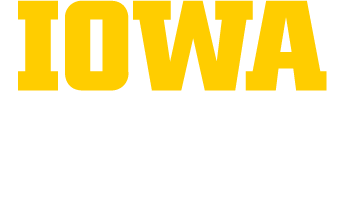Does your student score at the top of the class on most standardized tests? Earning such high scores feels excellent, but it is also one indicator that your student may have already mastered the curriculum for their grade and needs more challenging material. Just how much more challenging? Above-level testing can help you figure it out.
About the Program
Every child deserves to learn something new every day, including the ones that ace every test. It's often the case that bright students are ready to learn things beyond the level of the grade they are in -- but how can you tell what level would be more appropriate for a particular student? Talent Search uses above-level testing to uncover information about a student's academic abilities and learning needs, helping parents and teachers discover what that student is ready to learn. Students anywhere in the United States are welcome to test.
"Above-level testing" is exactly what it sounds like: Give a younger student a test that was developed for older students.
Academically talented students tend to perform extremely well on tests developed for their own age group. They do so well that they get everything (or almost everything) right, and we don’t really know what the extent of their talents might be. Psychologists call this "hitting the ceiling" of the test. An above-level test, one that is developed for older students, raises the ceiling for that talented student and allows them to show the full extent of what they know - and what they don't yet know. In other words, above-level testing reveals what the student is ready to start learning.
Knowing how students performed on an above-level test helps us give students, their families, and their educators better advice about the kinds of educational options the students might need. For example, does this student need educational enrichment? Would that student benefit from moving up a grade level or two in math? Would another student benefit from grade-skipping? In just one or two hours of testing, we are able to get important information about the student’s academic abilities, which allows us to make recommendations about the types of educational challenges the student needs.
Above-level testing has other benefits, as well! The results can help parents and teachers advocate for the student, develop a course plan, or differentiate the curriculum in the classroom.
Above-level testing is available to students in grades 4-9 who have scored at the 90th percentile or higher in at least one subject of their grade-level standardized tests, such as Iowa Assessments. Additional students can be recommended by their teachers or parents/guardians. For questions about eligibility, contact assessment@belinblank.org.
4th - 6th Grade
Eligible 4th-6th-grade students can take an above-level Iowa Assessments, an online test designed for students who are several years older. Fourth graders take the 6th grade level of the test, 5th graders take the 7th grade level of the test, and 6th graders take the 8th grade level of the test. Teachers can arrange to test a group of students in their own school.
After the test, educators will receive an interpretation of scores helpful in making data-driven decisions and differentiating for their students through curricular intervention and enrichment.
Teacher-Arranged Testing
Teachers can arrange to test a group of students at their own school. The Iowa Assessments are being offered in collaboration with the Talent Identification Program of Kentucky (TIP-KY) at Western Kentucky University. TIP-KY and the Belin-Blank Center are working closely together to ensure that students have access to the challenging opportunities and information that participating in Talent Searches can provide. Learn more at TIP-KY's website.
Parent-Arranged Testing
We encourage parents to start by talking with their school about group testing before seeking individual testing. Once the school learns about the opportunities provided by above-level testing, they might be interested in offering the option to a group of their students. For parents who require individual testing, please email assessment@belinblank.org.
7th - 9th Grade
Eligible 7th-9th-grade students may take the ACT, a test designed for college-bound high school students.The Belin-Blank Center does not currently offer the ACT for 7th-9th graders. However, we highly recommend the Talent Identification Program of Kentucky (TIP-KY) at Western Kentucky University, which offers registration for this testing for students across the country.




